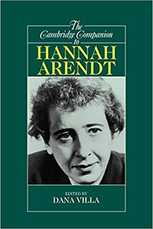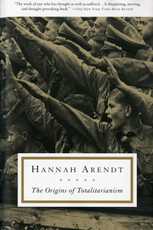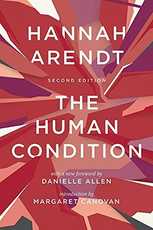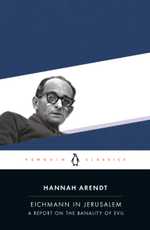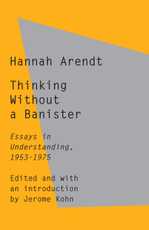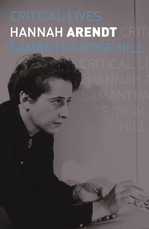

Hannah Arendt The Best 6 Books to Read
Born in 1906, German-born American philosopher Hannah Arendt is widely considered to be one of the most important political thinkers of the 20th century. Her many books and articles have had a lasting influence on political theory and philosophy.
Beyond Arendt’s brilliantly original critique of the human condition, she is perhaps most famous for her coining of the phrase, the ‘banality of evil’. As I explore in my short explainer piece on the ‘banality of evil’, Arendt argues that evil does not have the Satan-like, villainous appearance we might typically associate it with.
Rather, evil is perpetuated when immoral principles become normalized over time by unthinking people. Evil becomes commonplace; it becomes the everyday. Ordinary people — going about their everyday lives — become complicit actors in systems that perpetuate evil.
Early on in her academic life, Arendt was a student of the German philosopher Martin Heidegger, with whom she had a two-year love affair.
Heidegger infamously joined the Nazi party in the years leading up to World War Two. Arendt cut ties with Heidegger, fled an increasingly hostile Berlin (as a Jewish woman, she’d already been targeted by the Gestapo), and settled in France for seven years.
In one concise email each Sunday, I break down a famous idea from philosophy. You get the distillation straight to your inbox:
💭 One short philosophical email each Sunday. Unsubscribe any time.
As the war began to spread across Europe, in 1941 Arendt moved again to the USA, where she lived the rest of her life engaged in various academic and journalistic posts, dedicating much of her work to the rigorous analysis of totalitarian systems.
Arendt’s analysis of totalitarianism was in part motivated by seeking to understand how someone as intelligent as Heidegger (among other German philosophers of the period) could succumb to Nazi propaganda. Her rich body of work in this area is lauded as some of the most perceptive in the field, and is regularly drawn on today by those looking to analyze the techniques and mechanisms of totalitarianism.
This reading list contains the best books written by and about Hannah Arendt. After reading the books on this list, you’ll understand exactly why this brilliant, fascinating philosopher is considered to be one of the most important political thinkers of the 20th century.
1. Hannah Arendt (Critical Lives), by Samantha Hill
For a clear and concise primer that introduces Arendt’s works in the context of her life, Samantha Hill’s new biography Hannah Arendt (Critical Lives) is a fantastic place to start. Hill writes with exceptional clarity, conveying total mastery of Arendt’s texts.
While Elisabeth Young-Brehl’s highly-acclaimed 1982 biography Hannah Arendt: For Love of the World offers a longer introduction to Arendt and her work, Hill’s 2021 book arguably provides more lucidity, effortlessly weaving together biographical detail, archival documents, extracts from Arendt’s work, and correspondence with other thinkers of the time.
2. The Cambridge Companion to Hannah Arendt, by Dana Villa
Edited by Dana Villa, The Cambridge Companion to Hannah Arendt is a collection of highly illuminating academic essays on various aspects of Arendt’s thought. The essays cover ground from Arendt’s views on totalitarianism and her idea of the banality of evil, to her final reflections on judgment and the life of the mind.
A brilliant and deeply thoughtful collection, The Cambridge Companion to Hannah Arendt belongs on the bookshelf of any aspiring Arendt scholar.
3. The Origins of Totalitarianism, by Hannah Arendt
Exploring the institutions, operations, and techniques of totalitarian movements, Arendt’s 1951 The Origins of Totalitarianism (her first major work, which also features as an essential book on our political philosophy reading list) focuses on two genuine forms of totalitarian government in our recent history — Nazi Germany and Stalinist Russia — which she shrewdly establishes as two sides of the same coin, rather than opposing philosophies of Right and Left.
Covering the role of propaganda, the use of fear, and the nature of isolation and loneliness as preconditions for totalitarian rule — the insights in Arendt’s tour de force are as piercing and relevant today as ever before, rendering The Origins of Totalitarianism utterly essential for anyone interested in political philosophy and its real-world application.
4. The Human Condition, by Hannah Arendt
Arendt’s 1958 work The Human Condition examines exactly what you’d expect from the title: the state of modern humanity. In her brilliantly novel critique, Arendt suggests society will become stuck in accelerating cycles of labor and consumption. Free human action will be replaced by instrumentalization, and meaning will be replaced by productivity…
Packed full of startlingly original insights, the problems Arendt identified then — diminishing agency and political freedom, the dangers of unsupervised technological advancement — continue to confront us today, making this magnificent work as timely as ever.
A classic in social theory, The Human Condition is a must-read for anyone interested in Arendt.
5. Eichmann in Jerusalem: A Report on the Banality of Evil, by Hannah Arendt
For one of her journalistic postings, Arendt covered the trial of Nazi war criminal Adolf Eichmann. In her report for The New Yorker, and later published in her 1963 book Eichmann in Jerusalem: A Report on the Banality of Evil, Arendt expressed how disturbed she was by Eichmann — but for reasons that might not be expected.
Far from the monster she thought he’d be, Eichmann was instead a rather bland, “terrifyingly normal” bureaucrat. He carried out his murderous role with calm efficiency not due to an abhorrent, warped mindset, but because he’d absorbed the principles of the Nazi regime so unquestionably, he simply wanted to further his career and climb its ladders of power.
Eichmann embodied “the dilemma between the unspeakable horror of the deeds and the undeniable ludicrousness of the man who perpetrated them.” His actions were defined not so much by thought, but by the absence of thought — convincing Arendt of the ‘banality of evil.’
A controversial and fascinating work, Eichmann in Jerusalem: A Report on the Banality of Evil is an essential book for those interested in understanding more about Arendt’s views on how something like the Holocaust could happen.
6. Thinking Without a Banister: Essays in Understanding, by Hannah Arendt
Thinking Without a Banister: Essays in Understanding is a collection of essays, letters, and unpublished writings Arendt wrote from 1953 until her death in 1975.
The title of the collection refers to Arendt’s description of her experience of thinking, an activity in which she partook subversively without any of the traditional religious, political, or philosophical pillars of support.
Containing a thoughtful mix of Arendt’s views, Thinking Without a Banister: Essays in Understanding provides a wonderful overview of the great philosopher’s ideas.
Further reading
Are there any other books you think should be on this list? Let us know via email or drop us a message on Twitter or Instagram.
In the meantime, why not explore more of our reading lists on the best philosophy books:

View All Reading Lists
Essential Philosophy Books by Subject
About the Author

Get one mind-opening philosophical idea distilled to your inbox every Sunday (free)

From the Buddha to Nietzsche: join 25,000+ subscribers enjoying a nugget of profundity from the great philosophers every Sunday:
★★★★★ (100+ reviews for Philosophy Break). Unsubscribe any time.

Latest Breaks
Each philosophy break takes only a few minutes to read, and is crafted to expand your mind and spark your curiosity.
